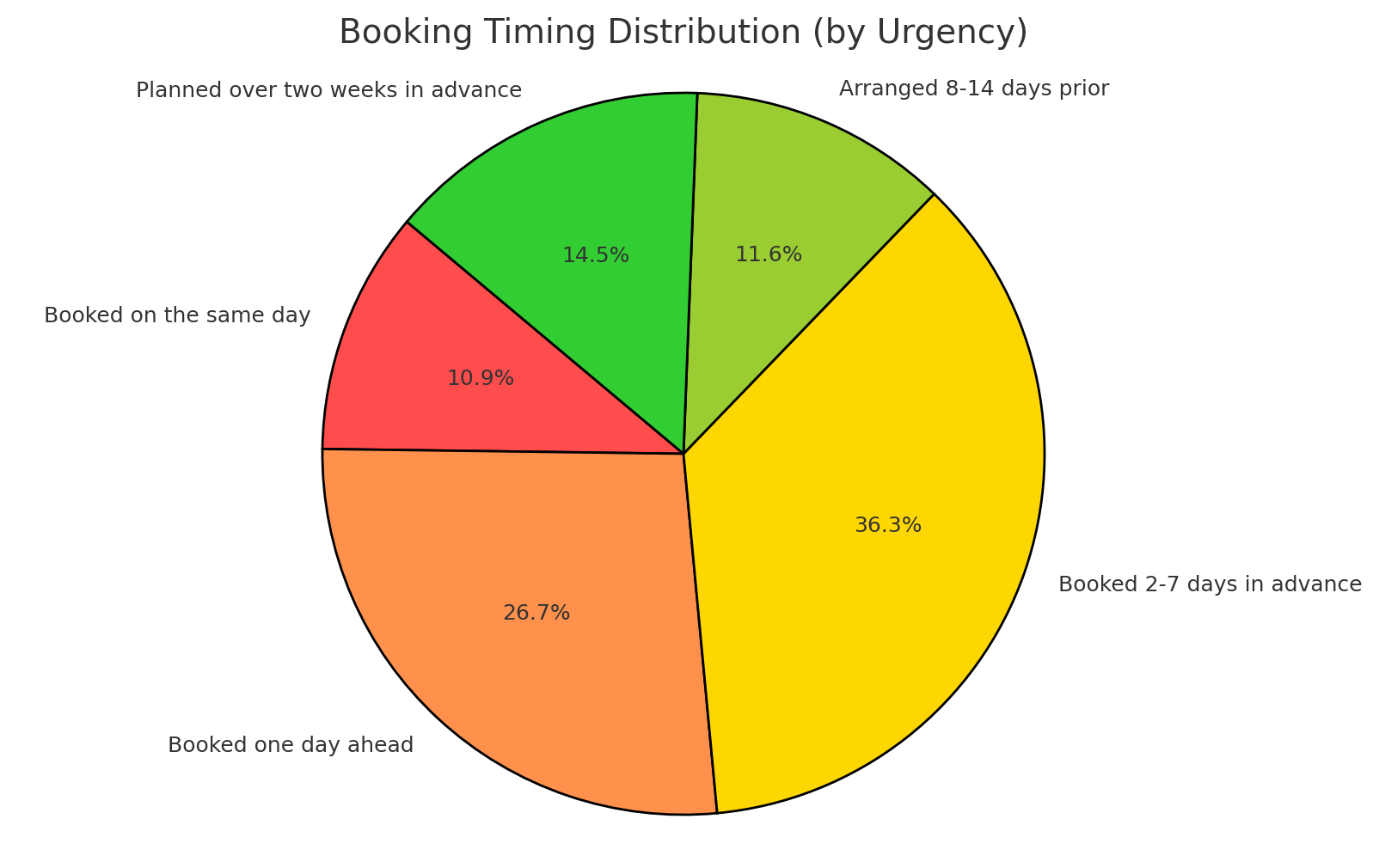Welcome to our brand new Data Insights Blog! In this series we’ll be diving deep into data from over 100,000 supply jobs booked through our platform — translating to more than 750,000 days booked and counting. We’ll reveal data-driven best practices, trends, and insights that empower you to provide and run a first-rate supply service to support your schools. Stay tuned for actionable analyses and strategies drawn from real-world booking data and set your organisation up for success on supply.
Teacher Booker’s Data Insights: Macro analysis to help your school or Trust improve supply provision
Pain is a powerful sentiment and few things in education can be as painful as sourcing supply staff first thing in the morning. But this pain is clouding our vision.
At Teacher Booker, we’ve analysed thousands of supply staff bookings made via our platform over a 4 year period to uncover what’s really happening.
If you’re feeling that morning pain then read on for the antidote.
Beyond the Emergency Mindset
By analysing over 100,000 supply bookings, we’ve discovered something surprising: only 12.6% of bookings are made on the same day that the assignment starts (most of these are for single day bookings). The vast majority (87%) of cover requirements are known about at least a day ahead, and over 60% are planned several days in advance.
This means most absences aren’t sudden emergencies and are actually predictable. Recognising this is crucial for any school that wants to get a handle on its use of temporary staff and move from reactive panic and last minute scrambling to a more strategic approach, using foresight and better planning to reduce disruption and stress.
Single-Day Absences: Frequent but foreseeable
We found that single-day bookings accounted for nearly half (49.7%) of all the supply booked in the data we analysed.
This means that schools are spending a significant amount of time organising individual days of cover – but just how many of them are emergencies?
We dug deeper and the results may surprise you:
- 10.9% booked on the same day.
- 26.7% booked one day ahead.
- 36.3% booked 2-7 days in advance.
- 11.6% arranged 8-14 days prior.
- 14.5% planned over two weeks in advance.
With 62.4% booked 2 days in advance or more, it’s clear that schools are regularly anticipating short-term absences, for example due to planned activities like professional development days, PPA (Planning, Preparation, and Assessment) time, internal meetings, or training sessions. These aren’t emergencies; they’re routine.
Could Better Timetabling and Resource Management Reduce External Cover?
Given that many single-day absences are predictable, it’s clear they aren’t primarily illness-related but linked to planned activities such as training, meetings, or administrative tasks. This presents a big opportunity to impact budgets, workload and stress: by improving internal timetabling and optimising the use of internal and extended staffing networks, schools can significantly reduce their dependence on external cover.
Schools already have many internal resources, including teaching assistants, cover supervisors, part-time staff, and staff with flexible timetables. Additionally, many schools have strong networks — partnerships with other local schools, retired staff, or known, trusted supply teachers.
What impact do lead times have on securing staff?
If internal resources and your extended network are maxed out and external help is still required, being proactive is still incredibly important. Further analysis of the data reveals:
- Booking 1-2 days ahead makes you around 17% more likely to secure supply staff than booking on the same day.
- Planning 3-6 days ahead boosts your chances by about 40%.
- Booking 1-4 weeks in advance increases your likelihood by approximately 59%.
Even modest improvements in your planning horizon can dramatically enhance your ability to secure high-quality supply cover, improving classroom stability and educational outcomes.

You’ve Got This
There will always be moments when you’re up against it first thing in the morning but it’s important to realise that with the right approach these headaches can be minimised.
Schools that adopt proactive absence management approaches will benefit from less early morning headteacher stress, reduced disruption, and improved student outcomes.
Stay tuned for future insights
Our ongoing Data Insights series will continue to offer valuable perspectives and practical guidance to help schools master absence management. Keep an eye on our blog to stay informed!

